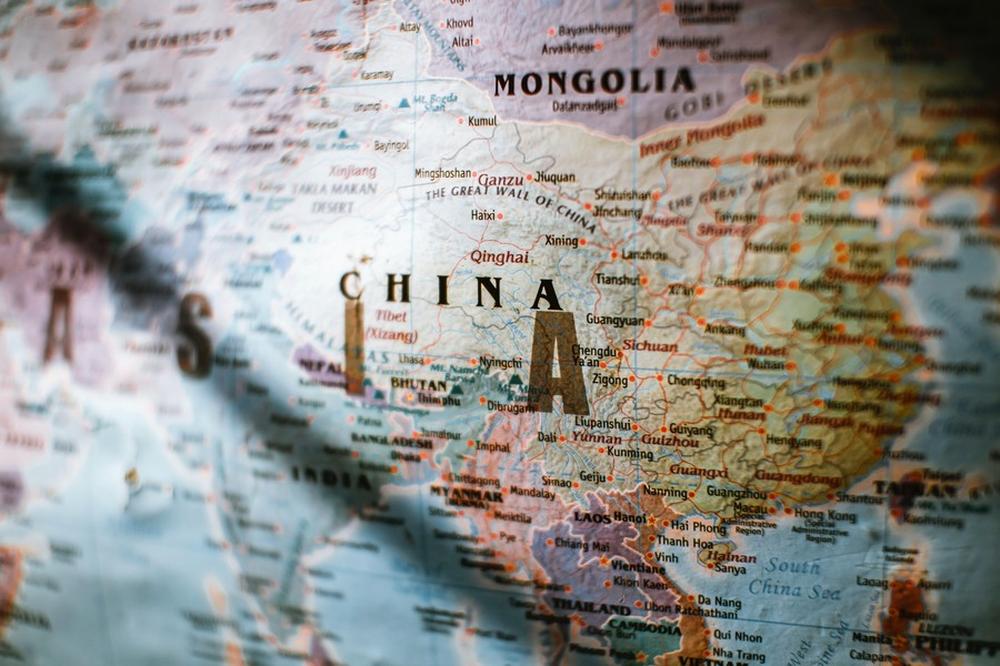- #China
- #Multilateral Relations
- #North Korea
- #Security & Defense
- #US-ROK Alliance

► North Korea's aggressive provocations and escalation of its nuclear threat level have raised South Korea's security anxiety and created a distrust of U.S. extended deterrence, sharply increasing the need for security cooperation among the United States, South Korea, and Japan that share the North Korean nuclear threat.
► North Korea responded to these changes through diplomatic and military cooperation with China and Russia, leading to a full-scale strategic competition among South Korea, the United States, and Japan, and China, Russia, and North Korea in the Korean Peninsula and Northeast Asia.
► The emergence of this new great power competition has several important strategic implications. 1) This shift in the power structure on the Korean Peninsula and in Northeast Asia was actively driven by South Korea and North Korea. 2) China and Russia have again become active players in the balance of power on the Korea Peninsular area. 3) It is necessary to analyze and evaluate North Korea's strategic game plan.
The year 2023 was a year of dramatic changes in the diplomatic and security landscape of the Korean Peninsula. North Korea's provocations to upgrade its nuclear and missile capabilities were more frequent and intense than ever before. North Korea conducted more than 20 provocations during the year. It tested nearly every nuclear-powered weapon system it is developing, including ICBMs, SRBMs, SLCM underwater drones, and cruise missiles. In addition to strengthening its nuclear capabilities, North Korea has also further refined its offensive nuclear posture. In 2022, it enshrined the conditions for the use of nuclear force in law, and in September 2023, it included a provision to strengthen its nuclear arsenal in its constitution. In particular, North Korea has recently focused on developing tactical nuclear weapons capable of striking South Korea directly, making it clear that its nuclear capabilities could include not only the United States but also South Korea and Japan.
North Korea's aggressive provocations and escalation of its nuclear threat level have raised South Korea's security anxiety and created a distrust of U.S. extended deterrence, sharply increasing the need for security cooperation among the three countries that share the North Korean nuclear threat. The Washington Declaration adopted at the April 2023 ROK-U.S. summit and the August trilateral summit at Camp David, U.S., in which the three countries pledged to strengthen cooperation against North Korea's nuclear program, are a natural reflection of these security needs.
The consolidation of the trilateral security cooperation system between ROK-the U.S. and Japan has further strengthened the United States' influence on Northeast Asia. Japan, which has been somewhat marginalized in the North Korean nuclear issue in recent years, has become a party to the security cooperation. In particular, the South Korean government has led the trilateral cooperation system by actively improving relations with Japan and dramatically strengthening the ROK -U.S. alliance. The strengthening of cooperation among the three liberal democracies in Northeast Asia created a diplomatic burden on China and Russia, the two major regional power shifts.
North Korea responded to these changes through diplomatic and military cooperation with China and Russia, leading to a full-scale strategic competition among South Korea, the United States, and Japan, and China, Russia, and North Korea in the Korean Peninsula and Northeast Asia. As a result, in 2023, the Korean Peninsula and Northeast Asia will be characterized by strong structural confrontation in addition to the existing U.S.-China strategic competition, U.S.-North Korea stalemate, and ROK-North Korea confrontation. In addition, after the Six-Party Talks in 2004, the six major Northeast Asian countries again became strongly involved in the North Korean nuclear issue, and the Korean Peninsula reemerged as a site of intense great power competition. Many have characterized this phenomenon as the formation of a neo-Cold War order in Northeast Asia.
The emergence of this new great power competition has several important strategic implications. First, this shift in the power structure on the Korean Peninsula and in Northeast Asia is distinctive in that, unlike in the past, it was actively driven by South Korea and North Korea. North Korea's nuclear sprint was clearly the trigger, and South Korea, faced with a serious nuclear threat, actively built a coalition. North Korea's active inclusion of its traditional allies, China and Russia, was also a rational response on balancing perspective, as North Korea felt threatened by the formation of a coalition against it.
Second, China and Russia have again become active players in the balance of power on the Korea Peninsular area. As denuclearization negotiations between the United States and North Korea unfolded in 2018 and a compromise between North and South Korea was reached, China's role in the region diminished. Russia focused on Eastern Europe and relatively neglected East Asian affairs. However, China and Russia have recently returned to the Korean Peninsula as North Korea's nuclear capabilities have strengthened U.S. influence in the region. The more China and Russia ignore the North Korean nuclear issue and continue to favor North Korea, the more U.S. influence increases. Of course, China's interest in blocking U.S. regional influence in the context of U.S.-China competition and Russia's need to help its ally North Korea in its war against Ukraine are other motivation.
Third, it is necessary to analyze and evaluate North Korea's strategic game plan. North Korea would preferably develope its nuclear capabilities alone, without the help of China and Russia, to counter the ROK-U.S. alliance and ROK-Japan cooperation. This is because it has traditionally strictly adhered to the principle of sovereignty in foreign and security affairs. However, North Korea has recently found it difficult to acquire nuclear advanced technology, and the strategic environment under severe sanction is unfavorable, so it has chosen to strengthen cooperation with China and Russia. North Korea seems to have decided that it can gain the cooperation of its two allies relatively easily, especially during the period of international political transformation such as the U.S.-China strategic competition and the Ukraine crisis. Moreover, strategically, it may have decided that it was not to its disadvantage to create a new Cold War configuration on the Korean Peninsula. However, North Korea's actions have resulted in its own confession of the vulnerability of its nuclear technology.
As such, the North Korean nuclear issue and the Korean Peninsula have quickly become part of a giant chessboard between great powers. So who will be the winner of this new order? In the end, it is likely to be the trilateral cooperation of South Korea, the United States, and Japan. First of all, in terms of capabilities, the China, Russia, and North Korea are at a distinct disadvantage. As of 2022, the combined military expenditures and GDP of the three countries are only 39% and 65%, respectively, of those of the South Korea, the United States, and Japan. Given China's slowing economic growth and Russia's spending on war, this capability gap will only widen.
It is also important to note that North Korea's military cooperation with Russia is unlikely to be sustained and strengthened in the medium to long term. Russia is seeking conventional military supplies from North Korea, including artillery shells and ammunition, as the war in Ukraine reaches a stalemate. However, there are limits to the amount of arms that North Korea can provide, and North Korean military assistance is unlikely to be a decisive factor in winning the war against Ukraine. This suggests that Russia is unlikely to value North Korea's cooperation as highly as North Korea expects. As a result, North Korea is unlikely to receive the critical nuclear weapons technology it expects from Russia. Most importantly, once the Ukraine crisis subsides, Russia will no longer need North Korea's military cooperation.
This is why China and Russia are likely to eventually adjust their level of cooperation with North Korea in order to block the continued rise of the U.S. influence in the region. For the two powers seeking to maintain their regional influence, the strengthening of U.S. influence and the subsequent consolidation of trilateral cooperation between South Korea, the United States, and Japan is a major strategic challenge. China and Russia, which tend to be status quo disruptors, will not stand idly by while these structures are strengthened. If they find it difficult to strengthen their own power, they will inevitably weaken the incentive for the United States to expand its influence. Eventually, China and Russia will realize that they will have to rein in North Korea's provocations and take a more active role in its denuclearization. This is why the current neo-Cold War on the Korean Peninsula is not a major strategic disadvantage for us.
Dr. Chung, Sung-Yoon is a Director of Unification Policy Studies Division, Korea Institute of National Unification. He is a member of advisory group of Office of National Security, Office of the President Republic of Korea. He can be reached at yooni0411@kinu.or.kr

